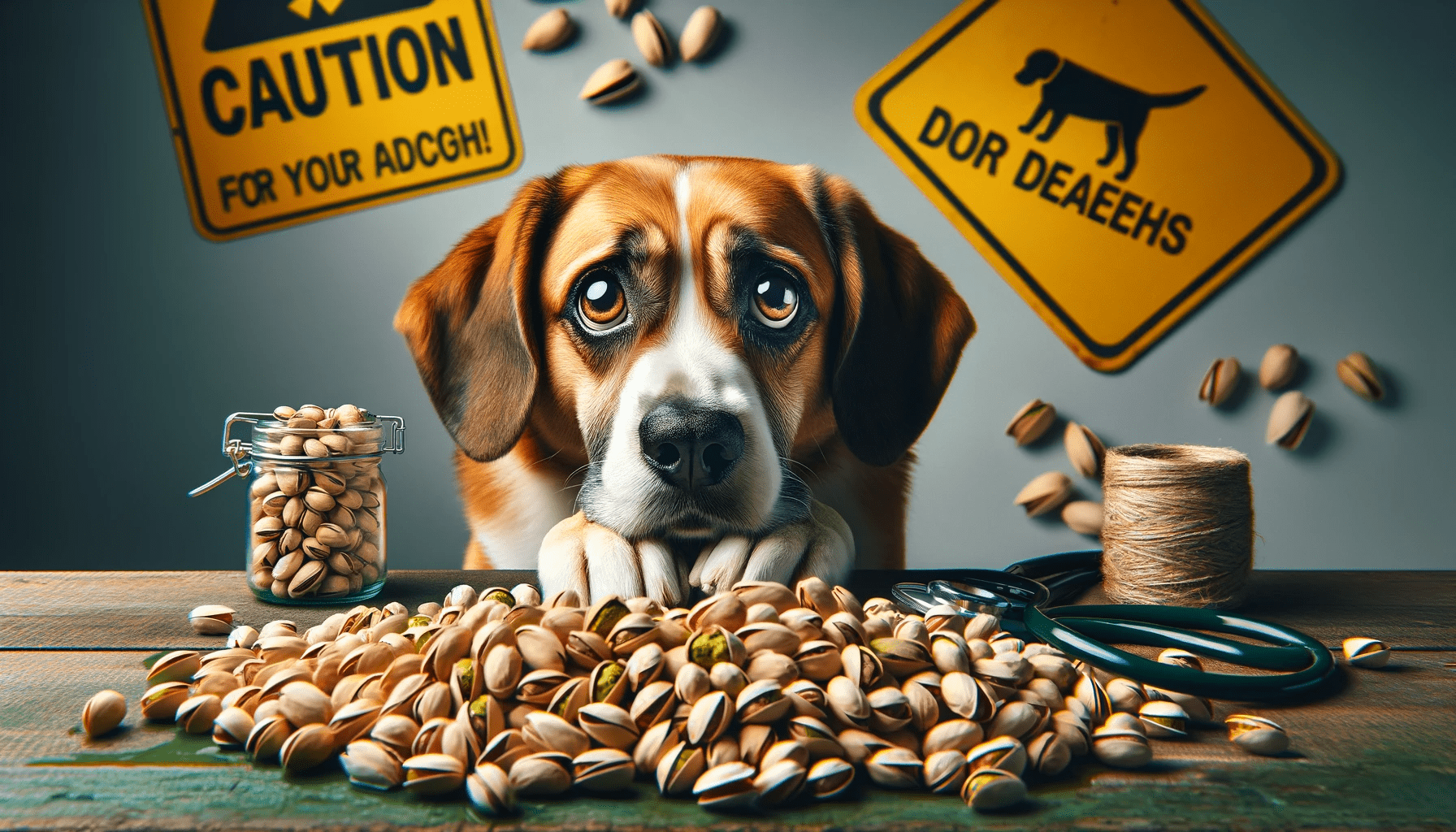Are you wondering how to keep your furry friend healthy and happy? Well, the key to a healthy dog diet is right at your fingertips.
In this article, we'll explore the benefits of a balanced diet for dogs and the essential nutrients they need. From protein to carbohydrates, fats to vitamins and minerals, we'll uncover the secrets to providing your canine companion with the nutrition they need.
Get ready to become an expert in keeping your pup fit and nourished!
Key Takeaways
- A balanced diet with essential nutrients is crucial for a healthy dog diet.
- Protein is important for muscle growth and repair, and high-quality animal-based proteins are recommended.
- Carbohydrates provide energy for dogs and help regulate their weight.
- Fats and oils, such as omega-3 and omega-6 fatty acids, are essential for a healthy coat and skin.
Benefits of a Balanced Diet
To ensure your dog's overall health and well-being, a balanced diet offers numerous benefits. A balanced diet for your furry friend includes all the essential nutrients, such as proteins, carbohydrates, fats, vitamins, and minerals, in appropriate proportions. These nutrients play a vital role in maintaining your dog's health and supporting their bodily functions.
One of the key benefits of a balanced diet is that it provides the necessary nutrients for your dog's growth and development. Proteins, for example, are essential for building and repairing tissues, while carbohydrates provide energy for daily activities. Fats, on the other hand, are important for maintaining healthy skin and coat.
Another important benefit of a balanced diet is that it helps prevent nutritional deficiencies. Essential nutrients, such as vitamins and minerals, are required in specific amounts to support various bodily functions. Without these nutrients, your dog may experience deficiencies that can lead to a variety of health issues, including poor immune function, weakened bones, and poor digestion.
In addition to preventing deficiencies, a balanced diet also helps maintain a healthy weight. By providing the right amount of nutrients, you can prevent overeating and obesity, which can lead to various health problems, including joint issues and heart disease.
Essential Nutrients for Dogs
To keep your dog healthy, it's important to ensure they receive the essential nutrients they need.
Protein is crucial for muscle growth, so make sure to include high-quality sources like meat or fish in their diet.
Vitamins play a vital role in maintaining overall health, so provide a balanced mix of fruits and vegetables.
Lastly, minerals are necessary for strong bones, so consider incorporating sources like bone meal or calcium supplements into their meals.
Protein for Muscle Growth
For optimal muscle growth in your dog, it's crucial to provide them with adequate protein in their diet. Protein is essential for muscle building and maintaining a lean body in dogs. It provides the necessary amino acids that are the building blocks for muscle tissue.
When dogs consume protein, it's broken down into these amino acids, which are then used by the body to repair and build muscles. Dogs have a higher protein requirement than humans due to their active lifestyle and faster metabolism.
High-quality animal-based proteins, such as chicken, beef, and fish, are recommended for dogs as they contain all the essential amino acids. It's important to consult with your veterinarian to determine the specific protein requirements for your dog based on their age, breed, and activity level.
Vitamins for Overall Health
Ensure your dog's overall health by providing them with essential vitamins in their diet. Just like humans, dogs require a variety of vitamins to support their immune system and maintain healthy skin.
Vitamin A is essential for maintaining healthy skin and promoting cell growth. It also plays a crucial role in supporting your dog's vision.
Vitamin E is a powerful antioxidant that helps protect cells from damage and supports a healthy immune system.
Vitamin C is important for collagen production, which is essential for healthy skin and connective tissues. Additionally, it helps boost your dog's immune system by fighting off harmful free radicals.
Including these vitamins in your dog's diet can help promote overall health and well-being.
Minerals for Strong Bones
Maintain your dog's bone health by ensuring they receive essential minerals in their diet. Minerals play a crucial role in maintaining strong bones, as well as promoting dental and joint health in dogs.
Calcium and phosphorus are two of the most important minerals for bone health. Calcium helps in the formation and maintenance of strong bones, while phosphorus works in conjunction with calcium to support bone structure and strength.
Additionally, minerals like magnesium and potassium also contribute to strong bones by aiding in the absorption and utilization of calcium. Furthermore, minerals such as manganese and copper are essential for the formation of connective tissues and cartilage, promoting healthy joints in dogs.
Including a balanced diet rich in these minerals can help ensure your dog's bone, dental, and joint health.
Importance of Protein in Dog Nutrition
Protein is a crucial component of a healthy dog diet. It plays a vital role in supporting overall canine health and well-being.
The benefits of dietary protein for dogs are numerous. One of the main benefits is muscle development. Protein helps to build and maintain lean muscle mass in dogs. This is important for their strength and mobility.
Protein also plays a role in tissue repair. When dogs experience injuries or undergo surgery, protein is needed for the healing process. It helps to repair damaged tissues and promote faster recovery.
Another benefit of dietary protein is enzyme production. Enzymes are essential for various metabolic processes in the body. Protein provides the building blocks for enzymes, ensuring that these processes can occur efficiently.
Lastly, protein is important for immune system function. It helps to produce antibodies that fight off infections and diseases. A strong immune system is crucial for keeping dogs healthy and preventing illnesses.
Protein for Dog Health
One key component to maintaining a healthy dog diet is ensuring they receive an adequate amount of protein. Protein is an essential nutrient for dogs as it plays a crucial role in their overall health and wellbeing. It's important to choose high-quality protein sources for your furry friend.
Some excellent sources of protein for dogs include lean meats like chicken, turkey, and beef, as well as fish, eggs, and dairy products. The recommended protein intake for dogs varies depending on factors such as their age, weight, and activity level. Generally, adult dogs require about 18-25% of their daily caloric intake to come from protein. Puppies and active dogs may need slightly higher amounts.
Providing your dog with the right amount and quality of protein will help support their muscle development, immune system, and overall vitality.
Benefits of Dietary Protein
Ensuring your dog receives an adequate amount of dietary protein is crucial for their overall health and wellbeing. Protein is a vital nutrient that provides numerous benefits for your dog's energy levels and their coat and skin health. Here are four key benefits of including protein in your dog's diet:
- Energy Boost:
Protein is a source of calories and essential amino acids, which are the building blocks of energy. It helps fuel your dog's activities and supports their muscle development.
- Healthy Coat:
Protein plays a significant role in maintaining a shiny and healthy coat. It helps strengthen hair follicles and promotes the growth of thick, lustrous fur.
- Skin Health:
Protein is essential for maintaining healthy skin. It supports the production of collagen, which helps improve the integrity and elasticity of the skin, reducing the risk of dryness, flakiness, and irritation.
- Wound Healing:
Protein is crucial for the healing process of wounds and injuries. It aids in tissue repair and regeneration, helping your dog recover faster.
Role of Carbohydrates in a Healthy Diet
To maintain a healthy dog diet, it's important for you to include carbohydrates in their meals. Carbohydrates play a vital role in providing energy to your furry friend. When dogs consume carbohydrates, their bodies break them down into glucose, which is then used as a primary source of fuel. This process, known as energy production, is essential for dogs to perform their daily activities.
Carbohydrates also play a role in weight management for dogs. Including the right amount of carbohydrates in their diet can help regulate their weight. Complex carbohydrates, such as whole grains and vegetables, provide a steady release of energy, keeping your dog feeling fuller for longer. This can prevent overeating and contribute to maintaining a healthy weight.
However, it's crucial to note that not all carbohydrates are created equal. Simple carbohydrates, like sugars and refined grains, should be avoided as they can lead to weight gain and other health issues. Instead, focus on providing your dog with high-quality carbohydrates that are rich in fiber and nutrients.
When determining the appropriate carbohydrate intake for your dog, it's best to consult with a veterinarian. They can assess your dog's specific needs and recommend a balanced diet that includes the right amount of carbohydrates for optimal health and energy production.
Understanding Fats and Oils for Dogs
When feeding your dog a healthy diet, it's important to understand the role of fats and oils in their nutrition. Fats and oils provide dogs with essential nutrients and play a crucial role in their overall health and well-being. Here are four key points to help you understand the importance of fats and oils in your dog's diet:
- Types and Sources: Fats can be classified into different types, such as saturated fats, monounsaturated fats, and polyunsaturated fats. Good sources of fats and oils for dogs include fish oil, flaxseed oil, coconut oil, and animal fats. These sources provide dogs with the necessary fatty acids they need to thrive.
- Omega-3 Fatty Acids: Omega-3 fatty acids are a type of polyunsaturated fat that's essential for dogs. They've numerous health benefits, including reducing inflammation, promoting a healthy coat and skin, supporting brain development, and improving joint health. Fish oil and flaxseed oil are rich sources of omega-3 fatty acids.
- Omega-6 Fatty Acids: Omega-6 fatty acids are another type of polyunsaturated fat that's important for dogs. They play a role in maintaining healthy skin and a shiny coat, supporting the immune system, and promoting proper growth and development. Common sources of omega-6 fatty acids include vegetable oils and poultry fats.
- Balancing Omega-3 and Omega-6: It's crucial to maintain a balance between omega-3 and omega-6 fatty acids in your dog's diet. While both are important, an imbalance can lead to health issues. Most commercial dog foods contain adequate amounts of omega-6 fats, but may lack sufficient omega-3 fats. Adding fish oil or other omega-3 supplements can help maintain the balance.
Understanding the different types and sources of fats and oils for dogs, as well as the importance of omega-3 and omega-6 fatty acids, will help you make informed decisions about your dog's diet and ensure their overall health and well-being.
The Significance of Vitamins and Minerals
Now let's delve into the importance of vitamins and minerals in your dog's diet, building upon the knowledge we gained about fats and oils.
Vitamins and minerals play a vital role in maintaining your dog's overall health and well-being. They're essential for various bodily functions, including the proper functioning of the immune system, metabolism, and growth.
Vitamins are organic compounds that are required in small amounts by your dog's body. They're responsible for regulating chemical reactions and supporting cellular processes. Some key vitamins for dogs include vitamin A, B-complex vitamins, vitamin C, vitamin D, vitamin E, and vitamin K. Each vitamin has specific functions and deficiencies can lead to various health issues.
Minerals, on the other hand, are inorganic substances that are necessary for the proper functioning of your dog's body. They're involved in processes such as bone development, nerve function, and muscle contraction. Some essential minerals for dogs include calcium, phosphorus, magnesium, potassium, sodium, and iron.
In addition to vitamins and minerals, antioxidants also play a significant role in dog nutrition. Antioxidants help protect the body's cells from damage caused by free radicals, which are unstable molecules that can lead to oxidative stress and contribute to various health issues. Some common antioxidants found in dog food include vitamins C and E, beta-carotene, and selenium.
To ensure your dog receives the necessary vitamins, minerals, and antioxidants, it's important to provide a balanced and varied diet. Commercial dog foods are typically formulated to meet these nutritional requirements, but it's always a good idea to consult with your veterinarian to ensure your dog's specific needs are being met.
Frequently Asked Questions
How Often Should I Feed My Dog?
You should establish a consistent feeding schedule for your dog. This helps regulate their digestion and prevents overeating. Portion control is also important to ensure they receive the right amount of nutrients without excessive weight gain.
Can I Feed My Dog a Vegetarian or Vegan Diet?
Feeding your dog a vegetarian or vegan diet has its pros and cons. While it can be done, it's important to consider the nutritional needs of dogs and ensure they get all the necessary nutrients from plant-based sources.
Should I Give My Dog Supplements in Addition to Their Regular Diet?
You should consider giving your dog supplements in addition to their regular diet. While not always necessary, certain supplements can help mitigate dietary risks and ensure your dog receives all the necessary nutrients.
How Can I Tell if My Dog Is Overweight or Underweight?
To determine if your dog is overweight or underweight, you can assess their body condition. Look for visible ribs or excessive fat. If your dog needs to gain weight, provide a balanced diet with additional calories. For weight loss, reduce calorie intake and increase exercise.
Are There Any Specific Foods That I Should Avoid Feeding My Dog?
You should avoid feeding your dog certain foods, such as chocolate and grapes. These foods can be toxic to dogs and can cause serious health issues. It's important to be aware of what your dog can and cannot eat to ensure their well-being.
Conclusion
In conclusion, providing a balanced and nutritious diet is key to maintaining a healthy lifestyle for dogs.
A well-balanced diet should include essential nutrients such as protein, carbohydrates, fats, and oils, as well as a variety of vitamins and minerals.
By understanding the importance of these components and ensuring they're included in their diet, dog owners can help promote their pet's overall health and well-being.






